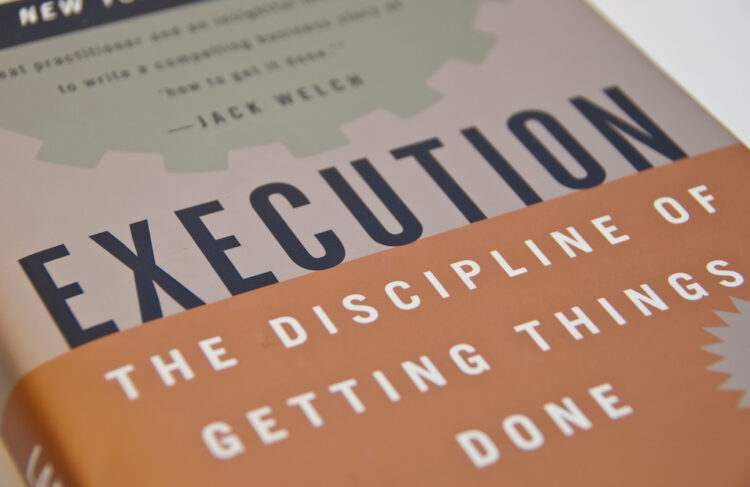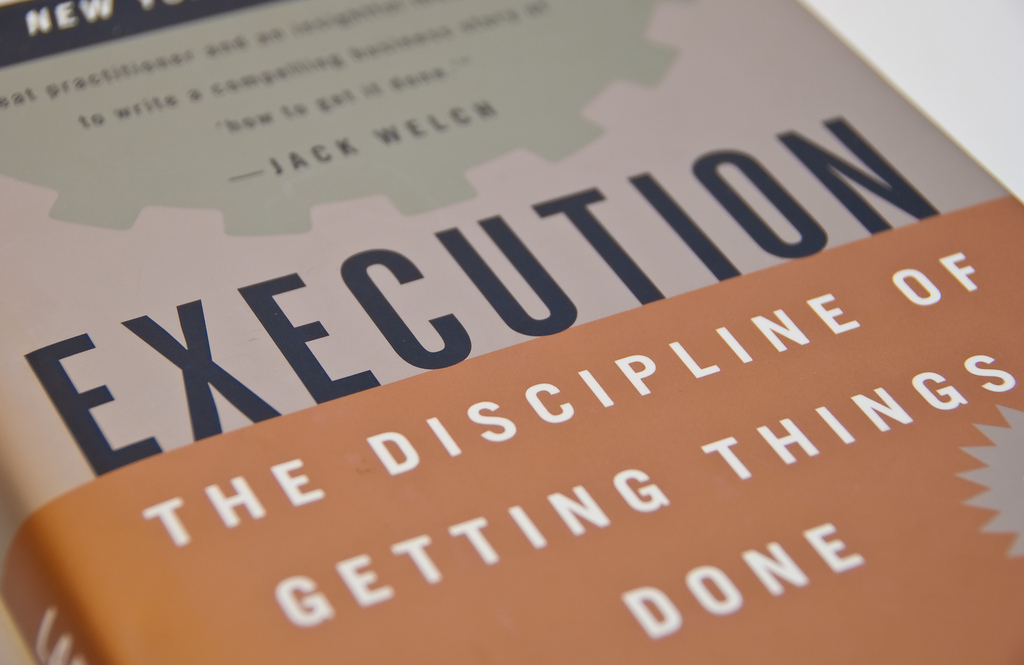Hey everyone, I hope everyone enjoyed my last post on “2014: the Year of the Entrepreneur” – The introduction of the Wasabi Ventures Academy. In it, we discussed how the essence of entrepreneurial spirit is greater than ever before and it’s time to act on it. Through my time thus far at Wasabi Ventures, I’ve been fortunate to develop a solid foundation into the mind of an investor when examining startups and wanted to help out my fellow entrepreneurs, which means YOU, with the lowdown on how an investor’s mnd works. This post will serve as the first part of a six part series.
As promised and without further ado, let’s discuss Idea Brainstorming.
All ideas SUCK.
It’s all about EXECUTION.
So, before we take a step further, it’s important to ask: what are ideas?
- We are talking about business ideas
- They are a solution to a problem
- They are NOT a business
- They DO NOT have to have a business model
- They have to be something you care about and understand
Where to get your idea?
Ideas should be personal
You should have personal experiences that allow you to identify and resonate with the idea.
Ideas need to be definable
In two sentences, can you describe the problem and your solution? If you can’t, keep searching.
Ideas need to be able to change the world***
In order to change the world, you need to critically ask yourself, “Can your idea turn into a solution for a large problem?
*** NOTE: This is only true if you are building a “fundable” company. Which usually means it has to be a company that can be scaled for mass growth and adoption. One way to assess this is by the company’s market potential (see below). This is not to say that non-fundable ideas are bad, because these ideas often times turn into great businesses; there’s just a difference of size and massive growth potential.
TK’s 4-Week Trick
This is an idea brainstorming trick that Wasabi Ventures Partner, TK Kuegler, advocates to help sprout creativity and the cultivation of new ideas.
Take the next four weeks to isolate yourself and think. List everything you can possibly think of in regards to things you wanted to do, but couldn’t do easily. Then ask yourself these questions:
- Why couldn’t I do this?
- Why couldn’t I find a solution?
- Was anyone else also trying to do this?
- Would I pay to have made this easier?
At this point, you aren’t looking to build a business. You are merely identifying problems or pains in the world that you recognize and associate frustration with.
Nex,t sit down with a mentor(s) and vet the list.
Build a simple Pitch Deck for your idea
This should not be a deck to go raise money. It is used to simply:
- Present the problem
- How you’re going to solve it
- How you’re going to build it
- How you’re going to make money
Decks are meant to help streamline and polish up your message, in addition to making it easier to discuss your idea with strangers. Don’t spend too much time making it pretty – you can always work on that later – but rather, focus on answering the three most essential questions when assessing a startup idea.
- Decks help you to hone your message
- Make it easier to talk to strangers about your idea
- Do not have to be pretty, but has to answer the three absolute essential questions
- This deck is not about raising money; it is about telling a story and getting smarter.
The 3 Questions
- What makes your market attractive?
- What makes your product/service a killer app?
- Why are you uniquely qualified to do this?
Market Attractiveness
What’s the size of the market?
10% of a $1B Market = $100M/year
This is the type of numbers investors salivate for, because it paves the way for a potential IPO.
- Openness
How saturated is the market? Don’t go build another desktop OS. I learned this the hard way with the first startup I was involved with, Luxury Lites. At Luxury Lites, our initial product line consisted of mostly electronic cigarettes. And at the time, the market was very saturated with big players like Blu and multiple larger corporations seeking to grow a presence in the industry. With creativity and initiative, my friend, partner, and the founder of Luxury Lites, Yaseen Waqar, and I decided to manifest our efforts towards creating electronic hookahs instead. This helped us capture a whole new market and compete in a new market – allowing us to scale quicker.
- Willingness to try new things
Is the industry looking for new things or ways to achieve an advantage? An example would be how financial institutions will do anything for an advantage.
- Successful analogous startups
If Yahoo, then Google; if MySpace, then Facebook.
The Killer App
- Is it a major pain? (Especially if it hurts your wallet)
Is it a real headache that requires an Aspirin or is it just a vitamin? An example of this would be VMware.
- Is it the new cocaine? (Shout out to the movie, Wolf of Wall Street)
No, I’m not just asking this because I loved the Wolf of Wall Street. But rather is the product or service viral and/or addictive? Think Facebook, Angry Birds, and Snapchat.
- An affordable indulgence/convenience
Is it the same, but not the same? A small jump up from the previous version or the competition. Think Macbook Air.
- Is it Magic? Completely new and revolutionary?
Ask yourself if the startup is like nothing that came before. An example of this would be the iPad.
Unique Qualifications
- Relevant, successful prior experience
This can include relevant industry experience in the space you’re looking to compete in.
- General startup experience
This is always a plus because it conveys to investors and others that you are familiar of the role of a startup founder and its extreme demands.
- Team has the complete set of required skills
From engineering, marketing and PR, industry knowledge, product knowledge, to sales and financial management the team is fully equipped to execute.
- The first…the leading…the only…
If the startup is the first, the only, or the leading entity in something, emphasize this on your deck. These are great points of conversation with speaking to others, particularly investors.
- Relationships with key market players
You are your network. Often times, in order to have a successful go-to market strategy and execution, your relationships can mean the difference between quick traction or bust. Invest time into understanding your industry and the key leaders and influencers within it. Ask questions about the future of the industry and their thoughts. These people will serve as powerful allies as you go to battle with your startup.
Stuff that isn’t as Important
- Academic degrees
No one cares what degree you have, whether it be MBAs, PhD’s, and Masters degrees. At the end of the day, it’s always about execution.
Amusingly enough, Aaron Patzer, founder of Mint, has a famous quote on assessing the value of MBAs in the startup ecosystem. “When valuing a startup, add $500k for every engineer, and subtract $250k for every MBA.”
- Unrelated prior experience
As far as how secretive you should be about your idea, I’m going to agree with my good friend and venture capitalist from Andreesen Horowitz, Chris Dixon from his blog post:
“A frequent question entrepreneurs have when they are just starting their company is: how secretive should I be about my idea? My answer: you should talk about it to almost anyone who will listen. This includes investors, entrepreneurs, people who work in similar areas, friends, people on the street, the bartender, etc. There are lots of benefits to talking to people. You’ll get suggestions for improvements. You’ll discover flaws and hopefully correct them. You’ll learn a lot more about the sector/industry. You’ll learn about competitive products that exist or are being built. You’ll gauge people’s excitement level for the product and for various features. You’ll refine your sales and investor pitch. You might even discover your idea is a bad idea and save yourself years of hitting your head against the wall.” – Chris Dixon
The reality is, anyone can come up with ideas. And even in the case when two individuals have the same idea, the manner in how they go about in executing those ideas will never be the same. The design, functionality, and go-to-market strategy will never be the same. Entrepreneurs are all different, with unique outlooks, perspectives, and talents. This is where the excitement of competition comes into play. As an entrepreneur myself, I’m always eager to share my ideas and hear others. If someone does steal my idea and enables it to materialize into a startup, three things can happen.
- It gives you a greater incentive to compete and grind to gain an edge to win
- The sharing of ideas proves there’s a market for it
- The startup ecosystem benefits, as new ideas surface allowing for greater questions and more activity.
This concludes the first part of the six part series in the Wasabi Ventures Academy. I hope you enjoyed it and feel equipped to go out there and start brainstorming on ways to help change the world.
Let’s get creative.
Let’s explore.





